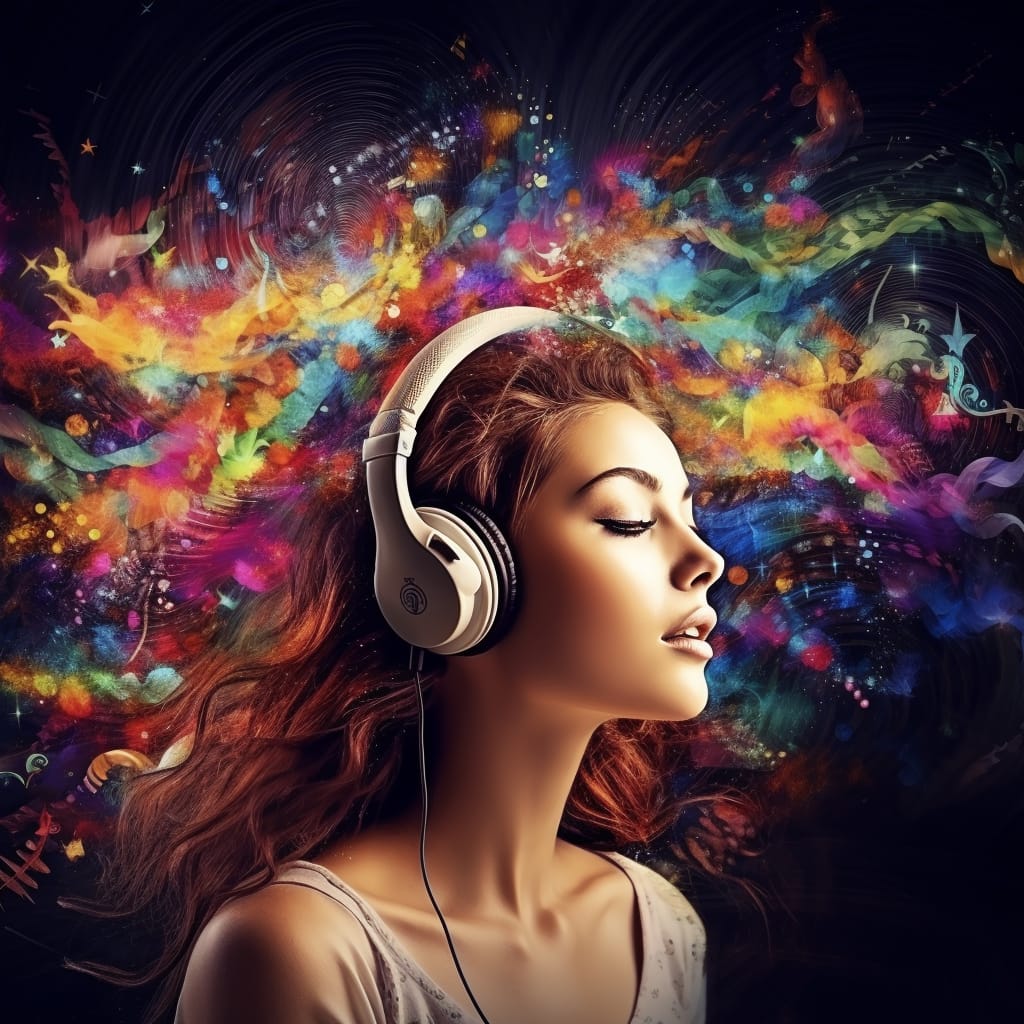Music Therapy: The Healing Power of Melody

The Therapeutic Power of Music
For countless generations, music has resonated deeply within human beings, not just as an art form but as a source of healing and therapy. In contemporary times, while its therapeutic potential has always been recognized, there's an emerging emphasis on music's tangible health benefits substantiated by scientific research.
Music Therapy Defined
Music therapy, at its core, is an evidence-based clinical intervention wherein credentialed professionals use music-driven activities to address emotional, cognitive, and social needs of individuals. This form of therapy can be applied across a broad spectrum of health conditions, such as:
- Depression: Helps alleviate persistent feelings of despair, lethargy, and hopelessness.
- Anxiety: Assists in mitigating anxiety by invoking a sense of serenity and peace.
- Pain Management: Eases pain perception and augments pain endurance levels.
- Stress Relief: Diminishes stress, fostering better stress management techniques.
- Trauma: Enables individuals to confront and navigate traumatic incidents, curtailing symptoms such as unsettling flashbacks.
- Dementia: Stimulates cognitive activity, particularly memory recall, in dementia patients.
- Autism Spectrum Disorder: Enhances communication capabilities, social adeptness, and emotional modulation.
Modalities of Music Therapy
Each individual's therapeutic journey is unique; hence, music therapists adopt diverse approaches tailored to the patient's needs. This could range from passive listening to serene melodies or vibrant tunes, to actively creating music via vocalizations, playing instruments, or composing. The objective could be emotional expression, reminiscing, or mastering new competencies.
Scientific Backing of Music Therapy
Contemporary research has furnished compelling evidence highlighting music therapy's effectiveness. Outcomes indicate significant reductions in stress-related hormones, enhancement of mood and well-being, improved pain management, as well as bolstered cognitive performance, communicative skills, and social interactions.
Seeking Music Therapy
If the therapeutic avenues of music intrigue you, numerous resources are accessible both online and locally. Consulting a medical professional can provide insights into the appropriateness and potential benefits of music therapy for personal or familial needs.
In the vast world of medical interventions, music therapy emerges as a harmonious blend of art and science, tapping into the innate human connection to music to heal, soothe, and rejuvenate.
What is Music Therapy?
Music therapy is a therapeutic intervention that utilizes music to improve the health of individuals. Certified music therapists use music to help people manage their physical, emotional, and cognitive challenges. It can be used in various settings, from hospitals and nursing homes to schools and rehabilitation centers. You can read more about music therapy at the American Music Therapy Association's website.

The Healing Power of Melody: A Symphony of Recovery
Melodies are more than just sequences of notes; they are capsules of emotion, memory, and expression. These harmonious strands weave tales of past experiences, create ambiances of serenity, and stir profound feelings within us. In the realm of therapy, melodies harness these evocative powers to catalyze meaningful conversations and rehabilitative exercises, transforming lives in the process.
Therapeutic Applications of Melody:
- Unlocking Memories: Melodies are gateways to the past. In therapeutic contexts, a simple tune might usher in memories that provide a foundation for therapeutic dialogue. For a client cocooned in reticence, the familiar cadence of a melody could be the nudge they need to share a buried story or emotion.
- Rehabilitation Through Rhythm: Beyond the emotions, melodies, with their structured rhythms, are powerful tools for those grappling with physical impediments or neurological ailments. Notably, music therapy has displayed efficacy in aiding Parkinson's patients, aligning their strides with the rhythm to regain the ability to walk.
Highlighted Studies:
- "The Effects of Music Therapy on Motor Function in People with Parkinson's Disease" (2017) by Zhang et al.
- "The Impact of Music Therapy on Motor Recovery in Children with Cerebral Palsy" (2018) by Chen et al.
Amplifying Benefits of Music Therapy:
- A Soothing Respite from Anxiety and Depression: With melodies as allies, individuals find a tranquil sanctuary to confront and express suppressed emotions, fostering relaxation and mood enhancement.
- Enhancing Communication and Sociability: Beyond words, music emerges as a conduit for expressive creativity and camaraderie, honing listening aptitudes and nurturing social interactions.
- Pain's Melodious Distraction: The immersive nature of music provides a detour for the mind from pain, and the ensuing relaxation heralds the release of endorphins, nature's analgesics.
- Immunity's Harmonious Boost: By modulating stress and ushering in relaxation, music therapy indirectly bolsters our immune response.
- Supporting Children with Autism: Music therapy carves pathways for children on the autism spectrum to fortify their communicative prowess, easing anxiety and setting the stage for relaxation.
Highlighted Studies:
- "The Effects of Music Therapy on Anxiety and Depression in Children with Autism Spectrum Disorder" (2016) by Gold et al.
- "The Effects of Music Therapy on Social Skills in Children with Autism Spectrum Disorder" (2017) by Wang et al.
With its gentle, non-invasive nature, music therapy is a beacon of hope for many. Its resonance is felt across all age groups, each note promising healing, connection, and growth. If the therapeutic harmony of music intrigues you, consider seeking insights from healthcare experts or delve into the world of certified music therapists who orchestrate these melodic miracles.
Conclusion
Music therapy offers a unique and powerful form of healing that can bring about profound changes in an individual's physical, emotional, and cognitive health. It's a testament to the age-old belief in the healing power of music, confirming that melody can indeed provide medicine for the mind and body.